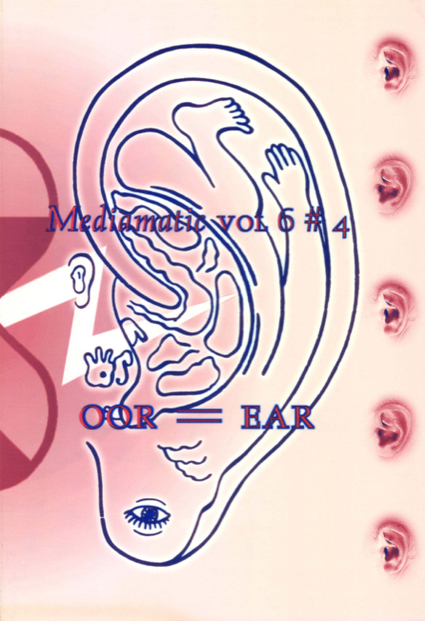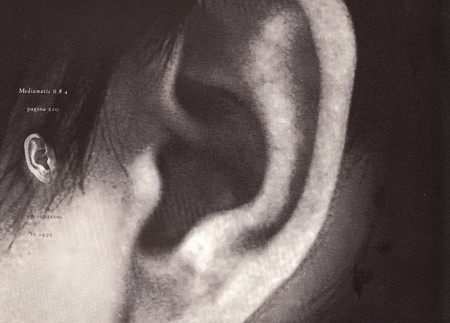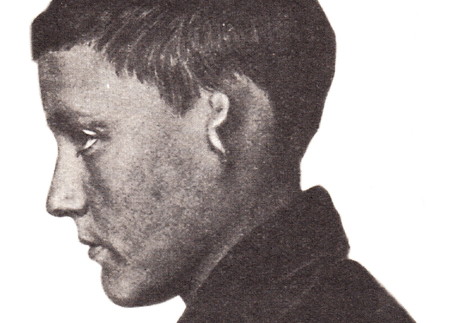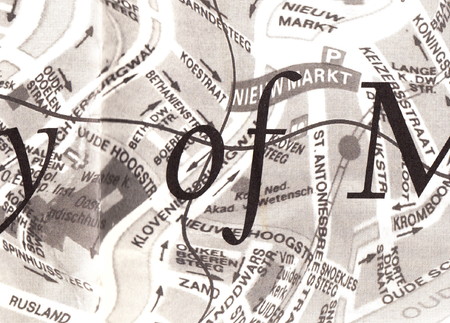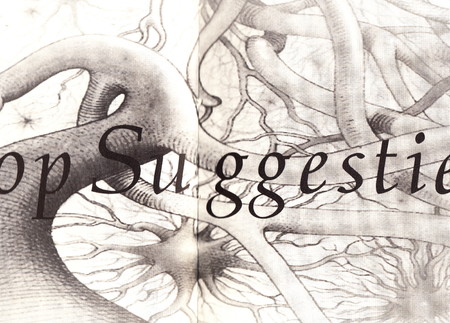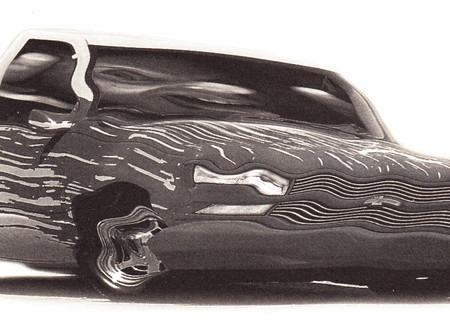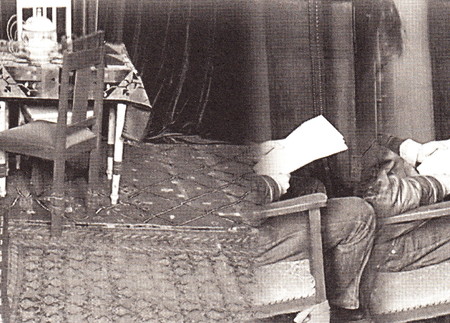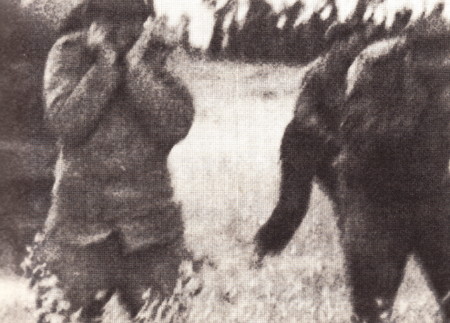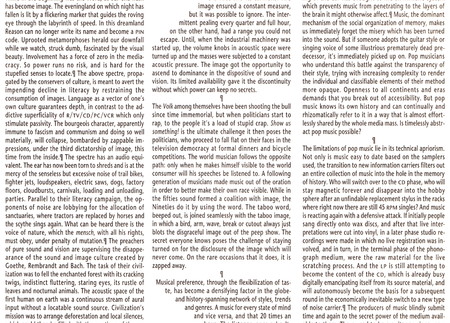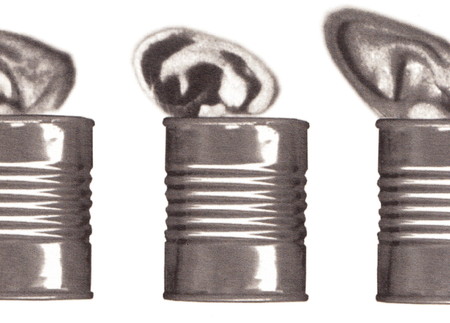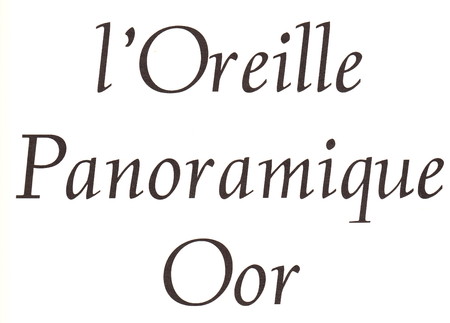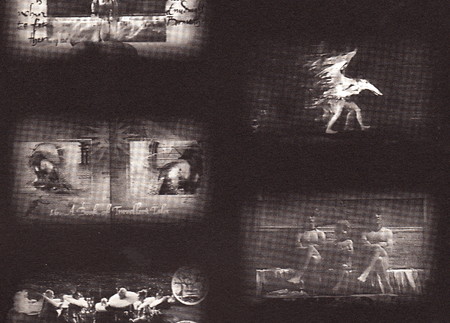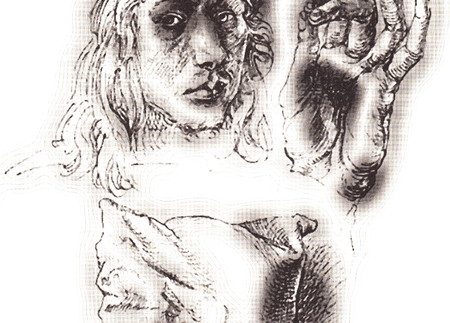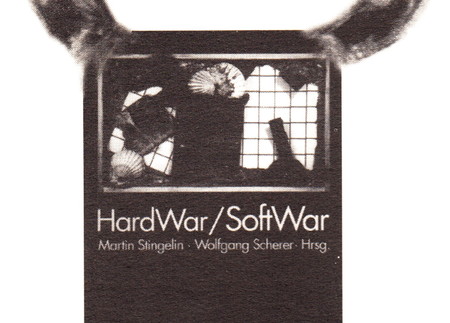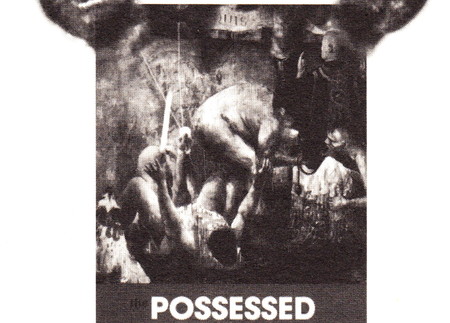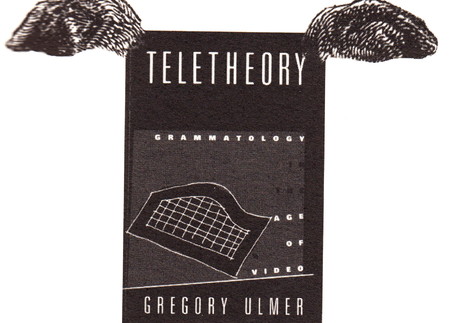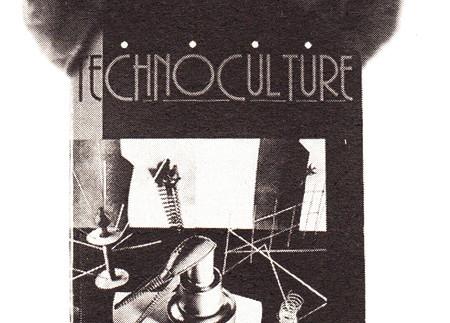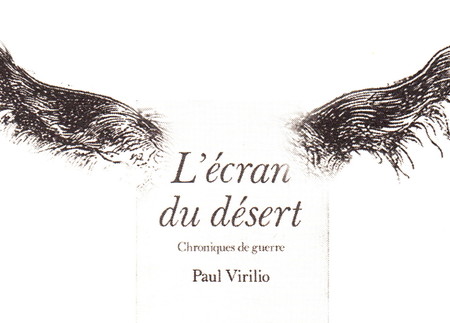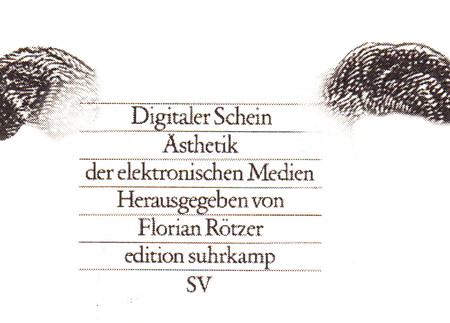But does the eye still know where and how to look? Or is the gaze now sharpened to such a razor point that it bores through every focal point? Has the distance between the eye and the world become so small that the eye has disappeared among things? Does the eye let itself be devoured by the world?
There is always the ear, that age-old sense organ of hearing. The ear, however, fell into discredit long ago. Since the discovery of the eye, hearing has come second. But if the eye can no longer keep track, isn't it high time to rehabilitate the ear? Farewell eye, welcome ear? What can the ear mean in a culture that swore by the eye?
Who better to answer these questions than the ear itself? Jorinde Seydel spoke with her (left) Ear, her best ear. It was an intimate affair in which the Ear often heard the questions even before they were spoken. A private conversation with the Ear.
js Do you feel underrated?
E: I'd like to cite Matthew, who said, Whoever has ears, hear. In other words, knowledge of the world takes place to an important degree via the ear. I think that since the Enlightenment, when the eye began its advance, we have disregarded this, that we have underestimated the ear's abilities. At the same time we began to overestimate the value of seeing, of the image. I see, therefore I am, became the motto. In this way our culture became dominated by 'making visible', so that the world is now turned inside out. The term Enlightenment says it all: we turned on the lights and started attacking the world with searchlights. There is no darkness or secret place left on this Earth. We have also trained the spotlights on ourselves. After the lightness of the perfect, clear sight of the Greeks, in the dark Middle Ages the serfs compensated for the soft candlelight and the weak light of oil lamps with the superterrestrial light of God, until under the light bulbs and electric lanterns we discovered our own contours. Because of overlighting by modern technological equipment, our own image is becoming blurred again. We have now reached a point at which, again to paraphrase Matthew,// we have no more oil in the lamp:// the eye is exhausted. I don't want to say anything bad about the eye (on which so much is forced already), but it's walking around with blinkers on. Could it get any more tragic? The maniacal production and reproduction of images in honour of the eye no longer has anything to do with conceiving or evoking reality. Images lead a life completely of their own, and things are going their own way again too. Well, you know as well as I do that people are currently doing whole studies on this.
Is the future up to the ear?
Although it seems absurd to make such a drastic, prophetic statement, the ear does indeed possess the ability to interpret and select sounds, perceptions of the world, and consequently to create meaning. Yes, that's almost outmoded, but it does mean that the ear can still offer humans the possibility of placing themselves in a world that is becoming increasingly complicated and abstract. This potential of the ear, however, is hardly being appealed to. The eye had its Enlightenment, but nothing has ever been mentioned for the ear. You can easily propose that the Enlightenment of the eye implied one for the ear. I always say, we might think we've seen everything, but we haven't heard anything yet. If the eye is now undergoing a terminal crisis, you'd think that in the land of the blind the ear is king. Nevertheless, the betrayal of the ear is merely continuing.
Betrayal of the ear – that sounds almost dramatic. How, then, is this expressed in everyday life?
Let me give you a simple example. The technological media strive to put the most perfect and so-called realistic pictures on the screen; the sound, however – and most pictures are accompanied by sound - is always inferiorly and discourteously rendered. With regard to sound, there is no reality or representation content to speak of. If you watch a murder happening on a heavy cop show on tv, say someone gets shot down at close range, then you will see the victim very realistically fall and die bleeding; you will not, however, hear the earsplitting crack of the gunshot, or the splashing and sloshing of the insides splattering to bits. Sound is almost always softened. Also, when you're shown war pictures on the news, the din of the violence of war is largely withheld from you. If they had let us hear the rattle of the machine guns and the boom of the bombings at real volume daily during the Vietnam War, we wouldn't have needed the tv at all to make the people conscious of the atrociousness of the war. Or imagine watching a football game on tv: the tv gives you close-ups of the players, but you never hear them gasping and hocking at full volume. So what is really being brought closer to you? A picture, never more than a picture. A betrayal of the ear. We have separated the image from the sound, and this has far-reaching consequences for our relationship with reality.
There has been hardly any research into the philosophical meaning of the ear. An ear is an ear is an ear? A theory of the ear is practically absent. The conference held in Berlin in 1990, Das Ohr als Erkenntnisorgan - zur Anthropologie des Hörens, might be considered as a first attempt at the rehabilitation of the ear. I hope that it wasn't merely a playful excursion by the initiator, Dietmar Kamper, but that there is more to come. The conclusion drawn at the conference that the eye loses itself in looking, while the ear regains itself in hearing, seems to me of great importance, and a stimulus to further research.
What does that statement mean to you?
The eye is swallowed up by the things at which it directs its gaze. The eye gives itself away; or more strongly, though it thinks it conquers, it is conquered. The world is constantly running away with the eye. How easily does the eye let itself be threatened? Otherwise perspective and trompe-l'oeil would not function, fata morgana would not exist. And the field of vision is much more limited than that of hearing. I hear you walking down the hall towards me, while in the room next door the telephone rings, the shout of the flower vendor on the street doesn't escape me, the arguing voices of the neighbors are audible and the whistle of the kettle in the kitchen is warning me...
Is there a difference for you between hearing and listening?
Hearing slightly precedes listening – or speaking, if you consider listening a mute form of speaking. We don't say you weren't really listening (although you did hear me) for nothing, or I tried to listen but I couldn't (because I couldn't hear well enough), or he pretended not to hear (so he wouldn't have to listen). The ear finds its freedom, like a moment of reflection, in the space between hearing and listening...
You have said that the ear indeed deserves revaluation, but that it must remain radically different.
Naturally I'm not arguing that the ear should simply replace the eye; that would mean that the ear's ability to tell effects apart would be negated. In other words, if the philosophy of Western culture has put out its own eyes, we can be pretty sure it's also capable of cutting its ear off. After all, we don't want a world of sham and show. The ear, sound, precisely because of its marginal role in our philosophy of progress, still has the potential to discover the world according to a different strategy. I am convinced that sound, through our culture's unwillingness to let it or want it heard at true volume, is still authentic. Because we have not yet annexed sound, there are still secrets available to the ear.
Do you mean that the ear can still be seduced?
When talking about the ear, I'd like to replace the term seduction with 'reconciliation': the ear can still reconcile. While the eye passively lets itself be seduced, there is a much more active role reserved for the ear.
Are you referring to a reconciliation of the human with the world via the ear?
Reconciliation may go a step beyond seduction: when I talk about reconciliation as a theoretical figure, I do not mean boring Hegelian synthesis, or the removal of differences. On the contrary, it concerns reconciliation with naked destiny, with the inaccessibility of nature, of the inner world with the outer, of life with death. Reconciliation has almost mythical dimensions.
People generally react with much more sensitivity to sound than to image. They complain about noise pollution, but not about image pollution...
That only confirms my idea that sound can still violate the ear. People have the idea that they have to protect themselves against sound. Sound can also penetrate marrow and bone. Conversely, we no longer even see the image, whatever extremes it displays. We are numbed. It follows that if you don't want to see something, you just shut your eyes, or turn away. In that respect sound is much more direct and merciless. I find it a strength of the ear that you can never really turn it off.
I think it would be very interesting to hear - I deliberately say hear instead of see - what would happen if for once we turned the volume of the world way up, so it could be heard at full blast. Let sound take revenge. Let all the dogs bark, let everyone start yelling, up with the volume knob of all the audio equipment, let the church clocks chime, let a gamelan band try to drown out a symphony orchestra... grinding knives, roaring seas, ticking clocks, humming refrigerators, bustling streets, singing birds, squeaking doors, creaking floors, beating hearts, sighing breath, ringing telephones, howling winds, tapping rains, cracking bones, rattling printers, groaning computers, gnashing teeth, jingling bells, roaring furnaces, panting lovers, honking cars, clinking coins, snoozing alarm clocks, clicking buttons, hesitating voices, wailing diseases, artistic poems, sputtering fires... Chatting, babbling, clanging, cursing, raging, grumbling, whining, shouting, speaking, screaming, yelling, laughing, mumbling, murmuring, whispering, name-calling, shrieking, blaring, booming, rasping, zooming, gurgling, cackling, weeping, rustling, crying, sniffling, grating, growling, hammering, drilling, belching... I would like to hear all these sounds together, like the performance of a fatal score. Although it sounds contradictory, only in this way can we possibly find the way back to our sense of hearing, through a deafening din. Another thing, no less important: only in this way can we rediscover Silence.
From din to silence: the silence after the storm. Isn't it strange for an ear to be talking about silence?
Silence belongs to the domain of the ear: it is one of the most subtle and significant sounds. You cannot see, smell, feel or taste silence. You hear silence. However, we are afraid of silence and constantly try to drown it out. Silence is supposed to be something negative; we associate it with passivity, with death, with danger. In a culture that values the productivity principle above all else, always and everywhere something must be said (since, after all, we can talk), there must be something to hear (since there is sound). It concerns a horror vacui which goes further and further and finishes off our ability to listen. Unwanted muzak in public spaces, escapism into Walkmans and Discboys, stupid babble that tries to disguise the fact that we have nothing to say... It's horrendous.
What can silence tell us, then?
What space is to the eye, silence is to the ear. Silence exists between, before and after sounds and prevents us from perishing in an impenetrable jungle of noise. So as an interval, silence can give sounds meaning. Denying silence can result in a catastrophic and deafening compression of sound. If we want to avert this then we must thoroughly rethink our relationship with silence. Silence might also be able to make us aware of the true sound of objects and events. We would discover that the voice which we always bestow upon the world – via our eternal interpretations, stories and analyses – is our own self-centred voice. It wouldn't surprise me if the satellites we've sent out into space to receive extraterrestrial sounds are only registering our own chatter and their own sounds. In short, silence, please; the objects are saying, Be quiet! I'm talking! An appropriate silence could probably give the things and the world around us their voices back. We have made a drama of silence; a reconciliation with silence, that is what the alternative of the ear should lead to.
I would like you to tell me which was here first: sound or image, the ear or the eye?
I do not say this out of vanity, but hearing and sound preceded sight and image. First there was the big bang, then there was the first image. According to the Christian doctrine of revelation, the creation of the world, of the visible, happened through the word:// Let there be light. And there was light.// One could argue that before everything there must have been an image, a conception of what light, in this case, is; at the same time, however, it could only have appeared by being pronounced, called into being, and it is the ability to hear which makes possible the spoken word.
The creation narrative of the Kliutes, an African tribe, tells how the first person sprang straight from the ear, the original ear. And today their culture still believes that the dead disappear back into the original ear. An extraordinarily beautiful thought, with great philosophical implications. According to Indian myth the world was born out of the tones of Krishna's flute, and thus sound was the source of all life. The ancestors of the Aborigines sang the world into being. Tree, they sang, and a tree appeared.
On another level: An unborn child in its mother's belly cannot see, but can hear. After birth it's a while before it can distinguish images, though it can already listen and recognizes the mother's voice. The scream at birth is witness to this; first the child lets us hear it. Only later does it show us itself, when it can see itself. Lacan ought to think about all the things that happen before the mirror stage. I daresay that before the mirror stage there is an acoustic stage. The child's first orientation in the world is of an acoustic nature.
translation laura martz
